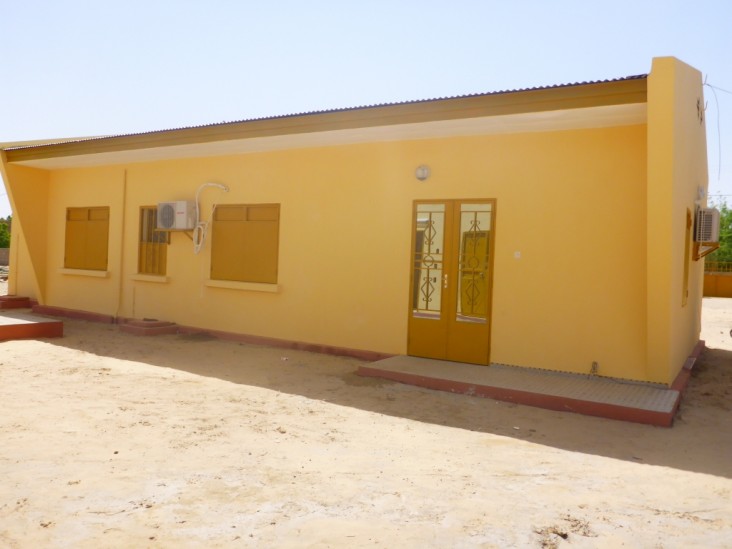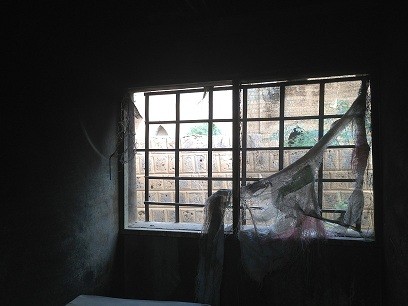
March 2015—During the occupation of northern Mali in 2012, Malian Government representatives were among the first to flee, leaving already weak public services nonexistent. Armed groups took advantage of the security vacuum and the abandoned buildings, using public administration offices as headquarters and barracks. Looters also vandalized and stole from the buildings, further destroying public resources.

Malian security forces have re-established control in many areas and government officials are slowly returning, but the damage done to public buildings prevents returning them to full operating capacity, including restoring public services.
The government-provided housing for Kassoum Kone, Timbuktu’s tribunal judge, was no exception. During the nearly year-long occupation, looters removed materials, equipment, copper wiring, doorknobs, windows and anything else they could from the property. Lack of maintenance caused the property to further deteriorate.
During their occupation of Timbuktu, armed groups and extremists established their own harsh systems of justice, based on a violent interpretation of Sharia law. Recognizing the symbolism and utility of physically and institutionally restoring the Malian Government system and access to justice services, the international community began investing in Timbuktu.
As a complement to larger-scale efforts by the United Nations Development Program, which renovated the tribunal itself, and the Luxembourg Agency for Development Cooperation, which rehabilitated the Timbuktu prison, USAID, through its Office of Transition Initiatives, rehabilitated and re-equipped the tribunal judge’s housing. The rehabilitation was completed in November 2014, allowing the judge to move into the newly renovated residence in December to resume his post and duties after spending more than eight months in a rented apartment.
“Before the rehabilitation, I was renting a place in town, which was a big handicap. It prevented my punctuality, and my security was not assured,” said Kone. “I had to leave the office early every day. As a result of this renovation, I am closer to the office and at the same time the community has access to the judge of the tribunal for a much longer day.”
LINKS







Comment
Make a general inquiry or suggest an improvement.